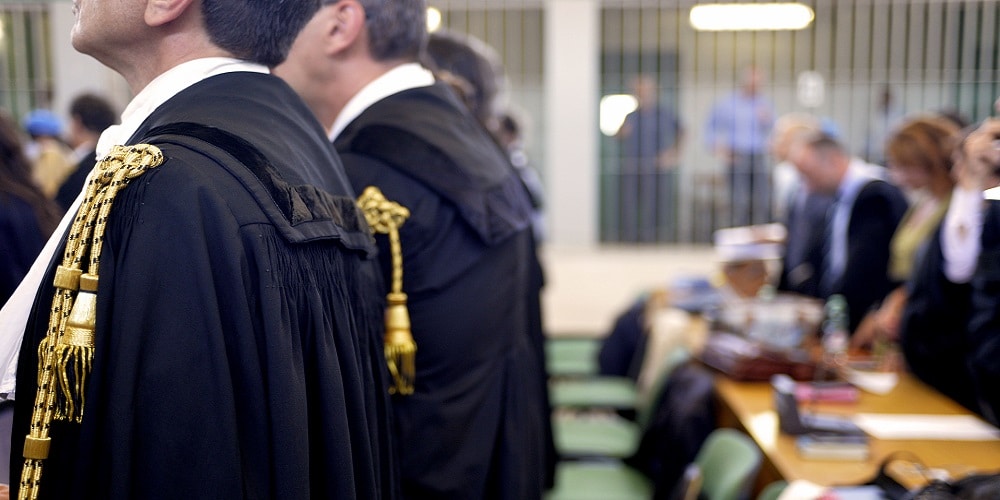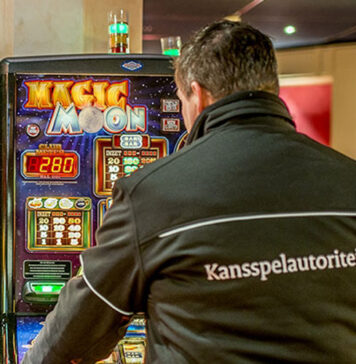The Emilia Romagna Regional Administrative Court rejected - through a ruling - the appeal presented by a company against the Municipality of Forlì, which requested the annulment upon suspension of the closure order of a gaming room that did not comply with the distance meter.
Below is the text of the ruling:
“Today's appellant states that he manages the activity of collecting legitimate gaming through a license pursuant to art. 88 t.u.l.p.s. obtained on 4 March 2013 from the Forlì Police Headquarters at the hall of (...) in Forlì with VLT (Video Lottery Terminal) devices and to carry out the ancillary activity of serving food and drinks with AWP (Amusement With Prices) devices at the same premises ).
In this capacity he challenged with separate appeals before the Administrative Court the municipal measures implementing the presupposed L.R. 5/2013 (art. 6, c. 2 bis) regarding the closure of amusement arcades located within the 500 m limit. from the so-called places sensitive or the resolution. G.C. n. 481/2017 mapping the rooms that do not respect the distance limits and the note dated 5 June 2018 of closure or relocation within six months.
With sentences no. 772 and 773 of 2022, the extinction of the judgments was declared due to subsequent renunciation.
With an act dated 29 February 2020, given the above and having acknowledged the failure to comply with the aforementioned closure order, the Service Manager initiated the procedure for the closure of the VLT games room.
With ordinance no. 1189 of 21 December 2022, following the expiry of the legal extensions, the Municipality of Forlì ordered the closure of the aforementioned VLT games room, already consequent to the inviolability of the aforementioned provisions, together with the closure of the ancillary activity of supplying food and drinks held in the same location.
With subsequent ordinance no. 61 of 24 January 2023, the municipal administration extended the closure to all devices present in the games room in question or also to those referred to in letter. a), of the art. 110 co. 6 RD 773/31, recalling the broad provisions of the art. 6, co. 2 bis, LR 5/2013.
With the introductory appeal (...) he challenged order no. 1189/2022 deducing reasons that can be summarized as follows:
I) Excess of power due to violation of the resolution of the Council of the Municipality of Forlì n. 481 of 18/12/2017 and the principle of the hierarchy of sources. Excess of power due to manifest illogicality, contradictory and unreasonableness and violation of the constitutionally guaranteed canons referred to in art. 97 of the Constitution and the principle of freedom of private economic initiative referred to in art. 41 of the Constitution Excess of power due to violation of legitimate expectations: the contested ordinance, signed by the municipal manager at the head of the Building and Economic Development Service, violates the principle of the hierarchy of sources, as a managerial act must respect the provisions of an act to it is superordinate, such as the resolution of the municipal council; the applicant's trust in carrying out the activity would have been undermined.
II) Violation of the law due to violation of the articles. 7 and 10 l. 241/1990. Excess of power due to violation of the principles of fair procedure and the constitutionally guaranteed canons of the good performance and impartiality of administrative action (art. 97 of the Constitution). Excess of power due to incorrect interpretation and application of the regional regulations underlying the provision. Excess of power due to manifest contradictoriness and irrationality. Excess of power due to lack of motivation. Violation of the principle of legitimate expectations: the provision in "part here" was issued without the appellant having been offered prior communication of initiation of proceedings pursuant to art. 7 l. n. 241/1990, since said communication concerned only the VLT room without any mention of the bar and the AWPs installed there, which are now required to be closed; the regional regulation presupposed by the closure measure itself which is discussed here and thus the consequent municipal measures concern only the VLT gaming halls, not the commercial establishments within which AWP devices are installed, which are subject to other regulations legislation at national and regional level.
III) Violation of the law due to violation of the art. 2 l. 241/1990. Violation of the law due to violation of the art. 122 of Code II of the Municipal Regulation approved with council resolution no. 81 of 20/4/2009. Violation of the law due to violation of the art. 1, paragraph 2 bis, l. 241/1990 – violation of the principle of legitimate expectations. Excess of power due to violation of the principle of fair procedure and the constitutionally guaranteed canons of the good performance and impartiality of administrative action (art. 97 of the Constitution). Excess of power due to absolute lack of investigation. Excess of power due to lack of motivation: the Administration would have evaded the 30-day deadline established in the communication of 29 February 2020 for the conclusion of the procedure, giving rise to the appellant's confidence in the positive outcome.
The appellant also made a request to order the Municipality of Forlì to pay compensation for damages resulting from delay pursuant to art. 2 bis l. 241/1990.
The Municipality of Forlì appeared before the court, objecting to the unfoundedness of all the "ex adverso" reasons raised with the introductory appeal, considering the extinction of the previous proceedings with the aforementioned sentences pronounced by this Administrative Court nos. 772 and 773 of 2022 together with the failure to submit a relocation application; the requested conversion from a VLT games room to a bar with AWP devices would not be possible as the requirements are different.
With an appeal for additional reasons, the appellant challenged order no. 61/2023 deducing complex complaints of violation of the law and excess of power in various respects, which can be summarized as follows: the power exercised by the Administration would be attributable to self-protection with the function of amnesty or validation of the defects reported with the introductory appeal to confirm of its validity; the order would in any case be unmotivated and not preceded by the necessary cross-examination.
The municipal defense with a statement also objected to the unfoundedness of the appeal for additional reasons, representing in summary how ordinance 61/2023 does not have the nature of validation but rather of integrative reform, innovating with "ex nunc" effect the content of the previous ordinance by extending the also closed to AWP devices; the administration activity carried out by the appellant would be completely ancillary to the main one, therefore following its fate; the existence of the legal conditions that led to the closure of the room would no longer be in question (...).
At the council meeting on 22 March 2023, with order no. 164/2023, the precautionary interlocutory request was rejected "given that the existence of the legal conditions that led to the closure of the gaming room in question can no longer be questioned and considering the lack of elements of sufficient foundation of the claimed claim also for the part in which the appellant invokes the "conversion" of the VTL games room to be operated with AWP devices.
With ordinance no. 2253/2023, the IV section of the Council of State accepted the precautionary appeal presented by the appellant limited to the profile of "periculum in mora".
Close to the discussion on the merits of the appeal, the parties filed briefs and documentation.
The municipal defense highlighted in particular how the closure of the games room in question derives directly from regional law no. 5/2013 and the consequent mapping of collection points that do not respect the distance limits from sensitive places carried out by the local authority pursuant to the d.G.R. n. 831/2017 in turn implementing the same regional law.
The appellant's defense requested the suspension of the proceedings pursuant to art. 295 c.p.c. given the connection with another judgment pending in the Council of State between another economic operator and the Municipality of Forlì concerning the ban on gaming halls due to the distance limits from sensitive places where a verification has been ordered to ascertain the expulsion effect on the municipal territory .
The Administration opposed the aforementioned request, not recognizing the prerequisites and not addressing the dispute in question on whether or not the expulsion effect of the legal gaming collection activity was ascertained.
At the public hearing on 20 December 2023, after hearing the defense lawyers of the parties, the case was held for decision.
RIGHT
1.-The legitimacy of ordinances nos. is a matter of dispute. 1189/2022 and 61/2023 with which the Municipality of Forlì ordered the closure of the games room (...) managed by (...) today's appellant.
In particular, with the first ordinance the Administration ordered the closure of the VLT gaming room (art. 110 co. 6. letter b) R.D. 773/1931) and the ancillary activity of serving food and drinks while with ordinance 61/2023 it extended the ban also to AWP devices (letter a) co. 6 art. 110 R.D. 773/1931).
The appellant complains about complex complaints both of a formal-procedural nature (including violation of the cross-examination and lack of relative competence) and inherent to the substantial claim to be able to legitimately carry out the activity of collecting legitimate gaming.
2.- First of all, the request for suspension presented by the appellant must be rejected.
Even if we ignore the fact that the suspension pursuant to art. 295 c.p.a. requires the identity of the parties to related proceedings (ex multis Council of State sec. IV, 7 November 2022, n. 9728) the profound difference in the object of the two judgments is completely absorbing, as today's one does not concern the factual assessment of the non-existence of suitable alternative areas in which the game collection activity can be relocated as a result of the application of the 'art. 6, co. 2 bis, L.R 5/2013.
As will be explored further below, in fact, as a result of the termination of the proceedings in which the appellant had challenged the G.C. resolution. 481/17 mapping the collection points that do not respect the distance from sensitive places and the consequential note of 5 June 2018 of closure (or relocation) of the room (T.A.R. Emilia - Romagna Bologna sentence nos. 772 and 773 of 2022), is the closure of the games room has become incontrovertible between the parties (...) due to its proximity to sensitive places.
3.- Coming to the merits, the introductory appeal and the additional reasons are unfounded.
4.- It is useful to start with a brief reconstruction of the regional reference legislation regarding the fight against, prevention and reduction of the risk of pathological gambling addiction.
The regional law of 28 October 2016, n. 18 introduced paragraphs 2 and 2-bis into the art. 6 of L.R 5/2013 in the exercise of its concurrent powers in the field of "health protection" (Const. Court no. 108/2017), and has dictated distance limits for all gaming and betting rooms, including the so-called corners, from sensitive places (schools of all levels, places of worship, sports facilities, residential or semi-residential structures operating in the healthcare or socio-health sectors, accommodation facilities for protected categories, places of youth gathering and oratories).
Pursuant to the resolution of the Regional Council n. 831 of 12 June 2017, municipalities are obliged to proceed with the mapping of collection points that do not respect the aforementioned distance limits, as carried out by the Municipality of Forlì with the approval of the G.C. resolution. n. 481/2017.
With these deliberative acts the municipal administration approved pursuant to the aforementioned d.G.R n. 831/2017 the mapping of sensitive places present in the municipal territory indicating with del. G.C. 481/2017, as regards the appellant's business, the proximity (within 500 m) to sensitive places.
This is a general administrative act which does not "contain abstract decisions with a harmful effect only at the time of the adoption of the implementing acts" but rather an act which can be divided into distinct and autonomous decisions, independently harmful to the positions of each owner of gaming or betting halls where "stroke" emerges oculi” the violation of the aforementioned distance limits, which according to the aforementioned regional legislation precludes the exercise of the activity if not in the face of the foreseen possibility of relocation (see T.A.R. Emilia-Romagna Bologna section I, 2 November 2020 n. 704; Id. 23 December 2020, n. 856).
In the procedural structure outlined by the art. 6 of regional law n. 5/2013, in fact, the damage to the interest of the owners of legitimate betting collection points in the continuation of the activity already occurs in the concrete implementation of the mapping of the specific distances by the municipalities, resulting in the subsequent closure measures of the activities that are completely constrained, consequential and without any new weighing of interests, in fact already carried out upstream in all respects by the regional legislator (see again T.A.R. Emilia-Romagna Bologna section I, 2 November 2020, n. 704).
5.- Given the above, it must be reiterated that the appellant, as a result of the extinction of the proceedings declared with the aforementioned sentences pronounced by the Court in question, is completely forfeited from any legitimate oppositional claim regarding the closure of the business as a result of the so-called distance meter contemplated by the regional legislation and by the implementing municipal provisions, not being able to claim to call into question this system through the alleged factual impossibility of relocation in the municipal territory, since these are clearly complaints that had to be asserted under penalty of forfeiture in the aforementioned judgments .
The existence of the conditions that led to the closure of the VLT arcade can therefore no longer be questioned between the parties, as already highlighted in the precautionary proceedings.
6.- Only the new reasons aimed at contesting the illegitimate extension of the ban to the ancillary activity of serving food and drinks and to AWP devices present in the same premises can therefore be examined in the context of the present proceedings (...).
7.- Given the above, as regards the introductory appeal, the complaints of relative incompetence, violation of the procedural cross-examination and alleged non-inclusion of the administration activity in the activity interdiction measures do not deserve acceptance.
7.1.- Regarding the identification of operating gaming and betting rooms located within a distance of less than 500 metres. established by the art. 6, co. 2-bis, L.R. 5/2013, the competence of the municipal council is limited to the reconnaissance acts of mapping these collection points and does not extend to the adoption of individual measures to close the rooms located in prohibited areas, the latter falling within the exclusive management competence of the managers in accordance with the general provisions of the art. 107, co. 3, letter. i), t.u.e.l. as well as the art. 4 Legislative Decree 165/2001, for the principle of separation between political activities and management activities, which are also of constitutional value (ex multis Constitutional Court, 15 March 2022, n. 70). If anything, all things considered, even the mapping activity could - in the absence of an express provision derogating from the competence - be included among the responsibilities of the managers referred to in the aforementioned regulations, as completely constrained and merely recognition of the choices made upstream by the regional legislator without any expenditure of administrative or technical discretion, as also highlighted several times by the Administrative Court.
7.2.- The administration activity, according to the same s.c.i.a. presented by the appellant on 6 March 2013, is ancillary to the main activity of the VLT gaming hall, so that it must follow the same fate, according to the well-known principle "accessorium sequitur principal", without prejudice to the possibility of presenting a new s.c.i.a. where the requisites required to carry out this activity exist.
By reason of this accessory relationship, the invalidating capacity of the failure to communicate the initiation of the procedure can be excluded (having effectively represented nothing to the Administration regarding the administration activity), since no useful participatory contribution would have been useful in a prognostic key, to the light of the principle of "instrumentality of forms", referred to in art. 21-octies, co. 2, L.241/90 (ex multis Council of State, sec. IV, 22 September 2014, n. 4740), as well as the interpretation of participatory institutions from a substantive perspective (ex plurimis Council of State, sec. IV, 12 October 2016, n. 4213).
7.3.- The complaint referred to in the third ground of objection, of violation of the deadline for concluding the procedure, is also completely devoid of merit, given that according to completely undisputed jurisprudence this violation does not give rise to annulment of the provision, but possibly to the liability of the 'Proceeding Administration (ex multis T.A.R. Lazio, Rome, sec. III, 26 January 2023, n. 1391). In the case in question, however, the complained of delay could not have generated any confidence on the part of the appellant company regarding the possibility of avoiding the closure of the business, which - as highlighted several times - was and is unavoidable due to the regional regulatory framework.
8.- As for the additional reasons, art. 6, co. 2 bis, L.R. 5/2013 and the d.G.R. implementation no. 831/2017 are clear in extending the distance limit to all gaming halls of all types and types (even those already in operation), therefore not only to the VLT halls referred to in the art. 110, co. 6, letter. b) RD 773/1931 but also to those AWPs referred to in letter. a) of the same paragraph, which is why the ban operates "ex lege" for all, leaving - as widely highlighted - no margin of discretion to the municipalities (ex multis T.A.R. Emilia Romagna Bologna section I, 2 November 2020, n. 704).
9.- With ordinance no. 61/2023, the Administration merely limited itself to integrating the content of the ban, once again in strict implementation of the aforementioned provision referred to in paragraph 2 bis of the art. 6 Regional Law 5/2023, as mentioned, with a deliberately all-encompassing content for the declared purpose of combating gambling addiction.
10.- In light of the above arguments, the introductory appeal and the additional reasons are unfounded and must be rejected.
There are just reasons to order the compensation of litigation costs given the complexity of the issues examined.
PQM
The Regional Administrative Court for Emilia - Romagna Bologna (First Section), definitively ruling on the appeal and the additional reasons, as proposed in the epigraph, rejects them.
Expenses compensated".











